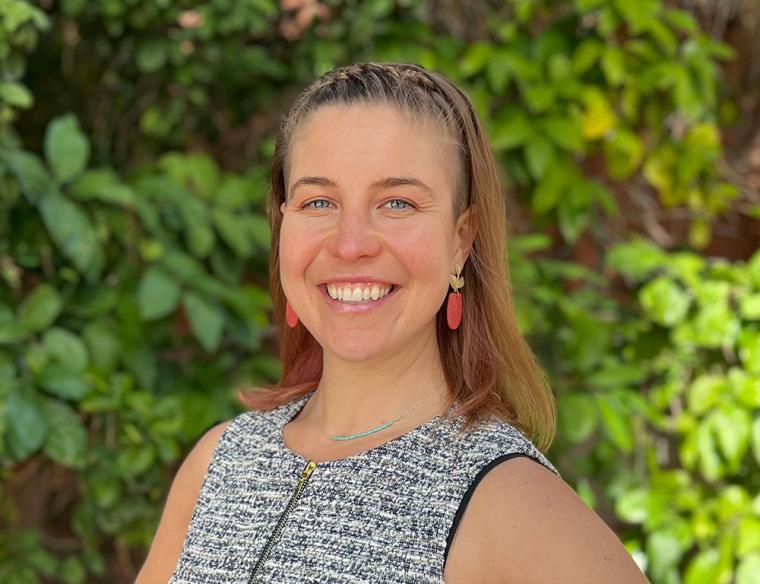Studying Science Scientifically Speaker Series: Sarah Bratt

Dr. Sarah Bratt, an assistant professor at the University of Arizona College of Information Science (iSchool), will present "Uncovering the Invisible Engines of Data-Intensive Science: Science of Science Studies of Datasets, Software, and Full-Text."
Dr. Sarah Bratt, PhD, is an Assistant Professor at the University of Arizona College of Information Science (iSchool). She holds a B.S. in Philosophy from Ithaca College and M.S. in Library and Information Science with a Data Science certificate from Syracuse University. Her research lies at the intersection of scholarly communication, research data management, and science of science. The overarching goal of her research is to understand and design for long-term research data sustainability and actionable science policy. Her research has been published in Quantitative Science Studies (QSS), Journal of Informetrics, and Scientometrics. She was a research Fellow at the Laboratory of Innovation Science at Harvard (LISH) and a Fellow at the iSchool Inclusion Institute (i3) and received multiple awards including the Masters’ prize in Library & Information Science at Syracuse University and honorable mention as a 2022 Better Scientific Software (BSSw) Fellow.
Abstract:
Science studies scholars have long studied the outputs of science — publications and patents. But, as Sabina Leonelli as pointed out, science is comprised of multifarious intermediate products and processes of science: datasets and software are the tissue that hold together a functioning scholarly universe. Like dark matter, the intermediary products of science have strong influence on the scholarly ecosystem, even though they may be difficult to detect and measure. Their presence must be inferred, often from the contexts in which they are embedded and the “spaces in between.”
In this talk, we will discuss ongoing projects on quantifying the intermediary products of science. The first project develops a text-based measure of humility in scientific inquiry, using NLP and computational grounded theory techniques to identify humble inquiry in the full-text of scientific articles. Second, we turn to the use and circulation of genomic datasets in the global north and south, and finally, discuss the linguistic clustering patterns of communities using scientific software in phylogenetics. This talk demonstrates the use of novel science of science datasets (Open Alex, SciSciNet, GenBank) and methods in science of science (computational grounded theory), and I hope it will be of interest to sociologists of science and knowledge, information scholars, and computational social scientists among others!
About the speaker series:
The CIRSS Friday Speaker Series continues in Fall with a new theme of "Studying Science Scientifically: State of the Art and Prospects for the Science of Science.” With increasingly rich data sources, exciting new technologies for understanding natural language, and modeling methodologies adapted from diverse domains of scholarship, the opportunities to observe, measure, and model the structure and dynamics of the scientific enterprise abound as never before. We are inviting some of the leading thinkers and most innovative researchers to present at this talk series to illustrate the breadth of advances that have been made, and the many more yet to be made.
We meet most Fridays, 11am-noon Central time, on Zoom. Everyone is welcome to attend. More information, including upcoming speaker schedule and links to recordings, is available on the series website. For weekly updates on upcoming talks, subscribe to our CIRSS Seminars mailing list. Our Fall series is led by Timothy McPhillips and Yuanxi Fu, and supported by the Center for Informatics Research in Science and Scholarship (CIRSS) and the School of Information Sciences at the University of Illinois at Urbana-Champaign.
This event is sponsored by Center for Informatics Research in Science and Scholarship